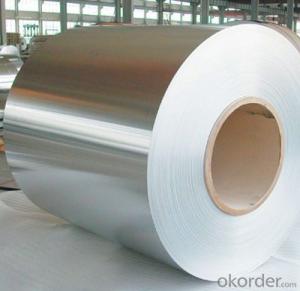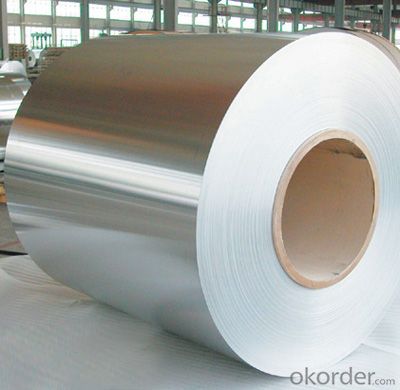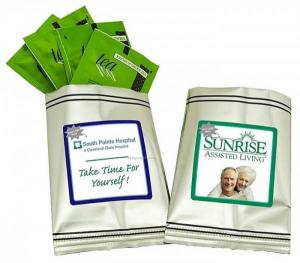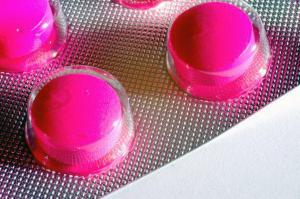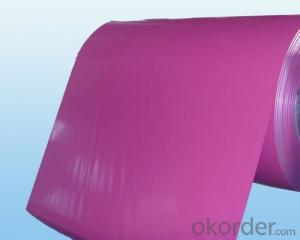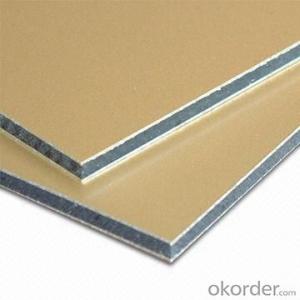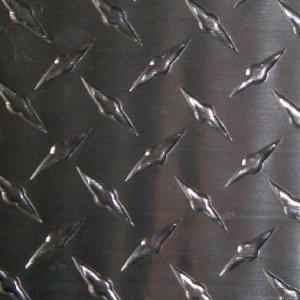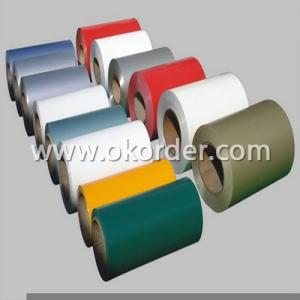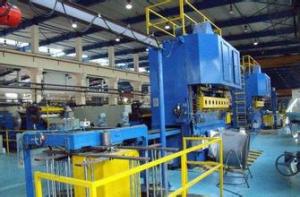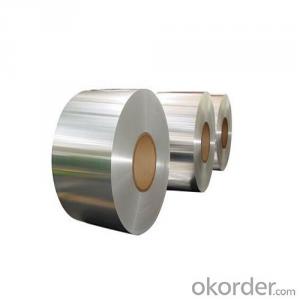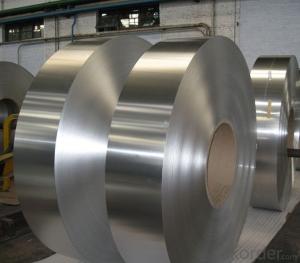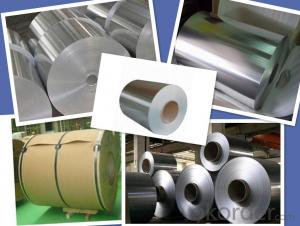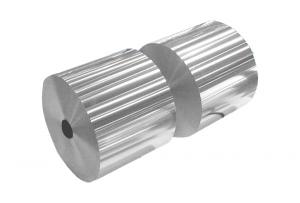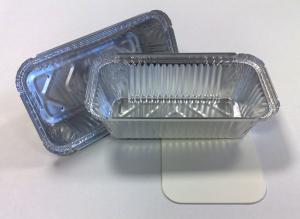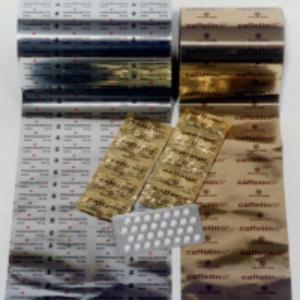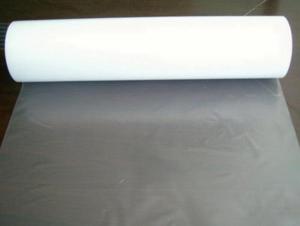Aluminum Coil EN AW-2024 with Competitive Price
- Loading Port:
- Shanghai
- Payment Terms:
- TT OR LC
- Min Order Qty:
- 5 m.t.
- Supply Capability:
- 1000 m.t./month
OKorder Service Pledge
OKorder Financial Service
You Might Also Like
Specification
1. Structure of EN AW - 2014 Aluminium Coil With Competitve Price Description
EN AW - 2014 Aluminium Coil is one semi-finished aluminium material. This coil can be rolled down to aluminium coil,sheet,circle ect. The alloy AA1050 is widly used in building, industry ect. Its weight is much lower than steel. So many customers choosed aluminium material instead of steel.
2. Specification of EN AW - 2014 Aluminium Coil With Competitve Price
EN AW - 2014 Aluminium Coil With Competitve Price | |
Main Specification | |
Alloy | AA1xxx (AA1050, AA1060, AA1070, AA1100 etc.) |
AA3xxx (AA3003, AA3004, AA3005, AA3105 etc.) | |
AA5xxx, AA6XXX (AA5052,AA5083, AA5754, AA6061, AA6062 etc.) | |
AA8xxx(AA8011, AA8006 etc.) | |
Temper | H14,H16, H18, H22, H24, H26, H32,O/F, T4, T6, T651 |
Thickmess | 0.01mm-100mm |
Width | 30mm-1700mm |
Standard | GB/T 3880-2006/ASTM |
Special specification is available on customer's requirement | |
3. Application of EN AW - 2014 Aluminium Coil With Competitve Price
(1).Interior: wall cladding, ceilings, bathrooms, kitchens and balconies, shutters, doors...
(2).Exterior: wall cladding, facades, roofing, canopies, tunnels,column covers , renovations...
(3).Advertisement: display platforms, signboards, fascia, shop fronts...
4. Feature of EN AW - 2014 Aluminium Coil With Competitve Price
Surfact Quality :
Be free from Oil Stain, Dent, Inclusion, Scratches, Stain, Oxide Dicoloration, Breaks, Corrosion, Roll Marks, Dirt Streaks and other defect which will interfere with use,
Mechenical Property:
Chemical Composite and Mechanical Property
5. Certificate of EN AW - 2014 Aluminium Coil With Competitve Price
SGS and ROHS(if client request, paid by client), MTC(plant provided), Certificate of Origin(FORM A, FORM E, CO), Bureau Veritas and SGS (if client request, paid by client), CIQS certificate
6. Image of EN AW - 2014 Aluminium Coil With Competitve Price
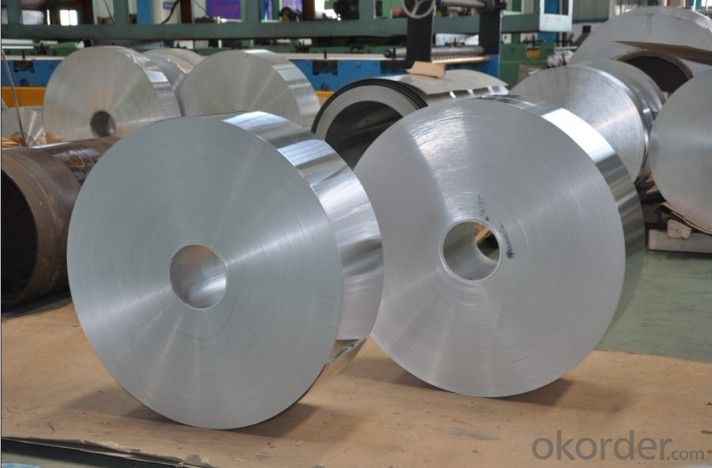
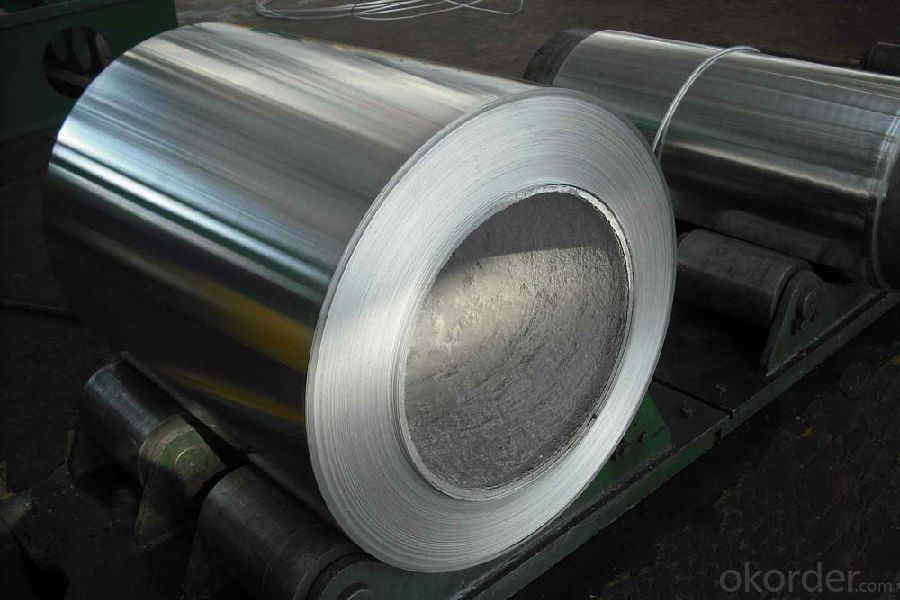
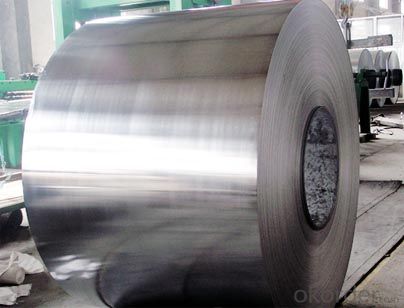
7. Package and shipping of EN AW - 2014 Aluminium Coil With Competitve Price
First, plastic cloth with drying agent inside; Second, Pearl Wool ; Third, wooden cases with dry agent , fumigation wooden pallets, aluminum surface could cover blue PVC film
8. FAQ
1) What is the delivery time?
Depends on actual order, around 20 to 35 days
2) What is the QC system:
We have QC staff of 20 persons and advanced equipment, each production is with MTC traced from Aluminum ingot lot.
3) What market do you mainly sell to?
Australia, America, Asia, Middle East, Western Europe, Africa etc
- Q: Explain how the addition of zinc impacts the corrosion resistance of aluminum alloys.
- <p>The addition of zinc to aluminum alloys significantly enhances their corrosion resistance. Zinc forms a protective layer on the surface of aluminum, which prevents the metal from reacting with corrosive elements such as oxygen and moisture. This protective layer, known as a passive layer, is self-healing and can regenerate if damaged, maintaining its effectiveness over time. Additionally, zinc's presence in aluminum alloys can improve the alloy's overall mechanical properties, making it more resistant to stress corrosion cracking. This is particularly useful in marine environments or other corrosive conditions where aluminum alloys are commonly used.</p>
- Q: This question asks about the impact of weathering on aluminum surfaces, including potential changes and effects.
- <p>The weathering process can significantly affect aluminum surfaces. Aluminum naturally forms a protective oxide layer when exposed to air, which provides corrosion resistance. However, over time, weathering can lead to the thinning or damage of this oxide layer, especially in harsh environments. This can result in corrosion, pitting, or discoloration. Additionally, weathering can cause physical changes such as surface roughening due to the differential erosion of the aluminum and its protective layer. In coastal areas, the presence of salt can accelerate these effects. Proper maintenance, such as regular cleaning and protective coatings, can help mitigate the effects of weathering on aluminum surfaces.</p>
- Q: Explain the impact of using recycled aluminum on the environment.
- <p>Using recycled aluminum significantly reduces our environmental footprint. It requires only 5% of the energy needed to produce new aluminum from raw materials, thus conserving energy. Additionally, recycling aluminum reduces greenhouse gas emissions by up to 95% compared to aluminum production from bauxite ore. This lowers air pollution and helps combat climate change. Moreover, recycling aluminum conserves natural resources and reduces the need for mining, which has its own set of environmental impacts, including habitat destruction and water pollution. Overall, recycling aluminum is a sustainable practice that benefits the environment by reducing energy consumption, emissions, and resource extraction.</p>
- Q: This question asks for the current cost of aluminum.
- <p>The cost of aluminum fluctuates based on market conditions and can vary by region. As of my last update, the price of aluminum was around $2,500 per metric ton, but this is subject to change. For the most accurate and up-to-date pricing, it's best to check with a commodity exchange or a reliable financial news source. Prices can be influenced by supply and demand, economic indicators, and geopolitical factors.</p>
- Q: This question asks for an explanation of the environmental effects caused by the process of smelting aluminum.
- <p>The environmental impact of smelting aluminum is significant. It is an energy-intensive process that contributes to greenhouse gas emissions, primarily due to the high electricity consumption required for the Hall-H茅roult process. This process also generates perfluorocarbons (PFCs), which are potent greenhouse gases. Additionally, the production of aluminum releases particulate matter and sulfur dioxide, contributing to air pollution. The extraction of bauxite, the primary source of aluminum, can lead to deforestation and habitat destruction. Moreover, the waste products, such as red mud, can cause water pollution if not properly managed. Overall, the smelting of aluminum has considerable environmental implications, necessitating the development of more sustainable practices in the industry.</p>
- Q: Besides other special pots, can other aluminum pots be used?
- Aluminum pots are not working wellChasing the answerAluminum pots are not working wellStainless steel pots available.
- Q: Is it possible to use aluminum as a treatment for diseases?
- <p>Aluminum is not typically used to treat diseases directly. It is a common element found in the Earth's crust and is used in various industries, such as manufacturing and construction. However, aluminum compounds can have medicinal uses in specific contexts. For example, aluminum hydroxide is used as an antacid to neutralize stomach acid and treat conditions like heartburn. It's important to note that aluminum should not be ingested in large amounts, as it can be harmful. Always consult a healthcare professional for proper treatment and medication advice.</p>
- Q: This question asks if there are any health risks related to cooking with pure aluminum pots and pans.
- <p>There are potential health risks associated with using pure aluminum pots and pans for cooking. Aluminum can leach into food, especially in acidic environments, which may lead to increased aluminum intake. High levels of aluminum in the body have been linked to neurological disorders, including Alzheimer's disease, although the connection is not definitively proven. Additionally, aluminum can interfere with the absorption of certain minerals, such as calcium and iron. For these reasons, it is generally recommended to use cookware made from materials that do not leach, such as stainless steel, cast iron, or non-stick coatings, to minimize exposure to aluminum.</p>
- Q: What are the potential health advantages of minimizing contact with aluminum?
- <p>Reducing exposure to aluminum may have health benefits, particularly in terms of neurological health. Aluminum has been linked to neurodegenerative diseases like Alzheimer's, although the evidence is not conclusive. Lowering exposure could potentially reduce the risk of cognitive decline. Additionally, aluminum may affect bone health and the immune system, so minimizing contact could support stronger bones and a more robust immune response. However, it's important to note that aluminum is naturally present in many foods and water sources, and moderate exposure is generally considered safe by health authorities.</p>
- Q: Is aluminum a component in the manufacturing processes of glass and ceramics?
- <p>Aluminum can be used in the production of glass and ceramics, although it is not a primary component. In glassmaking, aluminum is sometimes added to reduce the coefficient of expansion, making the glass more resistant to thermal shock. It can also improve the chemical durability and electrical insulation properties of the glass. In ceramics, aluminum compounds are used as opacifiers, colorants, or to enhance the mechanical properties of the final product. However, the use of aluminum in these industries is typically in small quantities and serves specific purposes rather than being a fundamental part of the material composition.</p>
Send your message to us
Aluminum Coil EN AW-2024 with Competitive Price
- Loading Port:
- Shanghai
- Payment Terms:
- TT OR LC
- Min Order Qty:
- 5 m.t.
- Supply Capability:
- 1000 m.t./month
OKorder Service Pledge
OKorder Financial Service
Similar products
Hot products
Hot Searches
Related keywords
